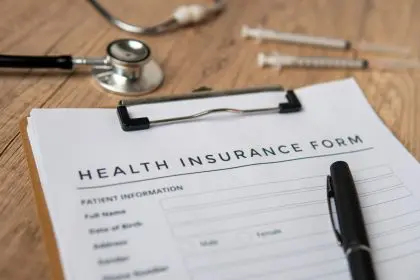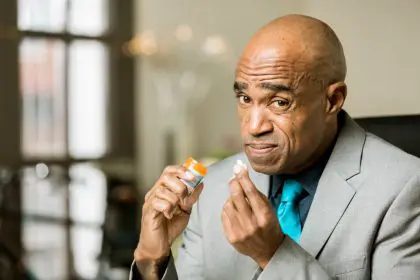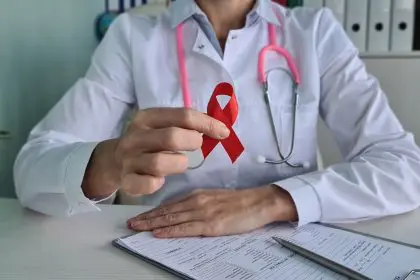Navigating the complexities of health care can be daunting, especially when it comes to managing costs. With the rising prices of medications, many patients find themselves struggling to afford their prescriptions. This financial burden can lead to skipped doses, untreated conditions, and overall poor health outcomes. Knowing that alternatives are available is crucial, and discussing cheaper medicine options with your doctor is a viable and often necessary step. Understanding why you should ask your doctor for cheaper medicine can empower you to take control of your health care costs without compromising your well-being.
The financial impact of expensive medication
Health care costs in the United States are notoriously high; prescription medications are a significant part of this expense. Many patients are unaware of the financial strain until they receive their prescriptions and are shocked by the high prices at the pharmacy. The financial impact can be overwhelming, leading to difficult decisions about whether to purchase necessary medications or to cut costs in other essential areas of life. You can mitigate these financial challenges by proactively discussing cheaper medicine options with your doctor.
- Understanding medication costs
- Prescription medications can vary greatly in price, even for the same condition. Brand-name drugs, in particular, tend to be more expensive than their generic counterparts. Generics are chemically identical to their branded versions and offer the same therapeutic benefits. Asking your doctor if a generic option is available can significantly reduce your medication costs.
- The role of insurance
- Insurance plans can be confusing, with different coverage levels and formularies that dictate which medications are covered and at what cost. Sometimes, a prescribed medication may not be covered, leading to high out-of-pocket expenses. By discussing your insurance coverage with your doctor, they can help you find alternatives that are covered by your plan, thereby reducing your financial burden.
Benefits of cheaper medicine
- Improved adherence to treatment
- One of the most significant benefits of cheaper medicine is improved adherence to treatment. When medications are affordable, patients are more likely to fill their prescriptions and take them as directed. This adherence is crucial for managing chronic conditions, preventing complications, and improving overall health outcomes.
- Reducing financial stress
- The financial stress associated with high medication costs can negatively impact mental health and quality of life. By finding cheaper alternatives, you can alleviate this stress, leading to a better overall sense of well-being. This financial relief can also allow you to allocate resources to other important areas of your life, such as nutrition, housing, and education.
How to discuss cheaper medicine with your doctor
- Be open and honest
- It’s essential to be open and honest with your doctor about your financial situation. Many patients feel embarrassed or uncomfortable discussing money, but doctors understand that financial barriers can affect health outcomes. By clearly communicating your concerns, your doctor can better assist you in finding affordable medication options.
- Ask about generic alternatives
- Generic medications are a cost-effective alternative to brand-name drugs. They contain the same active ingredients and have been proven to be just as effective. Ask your doctor if a generic version of your prescribed medication is available and if it would be suitable for your treatment.
- Inquire about over-the-counter options
- In some cases, over-the-counter (OTC) medications can be a suitable and cheaper alternative to prescription drugs. For conditions like pain management or allergies, OTC options might be effective. Discuss with your doctor whether an OTC medication could work for your situation.
- Discuss prescription assistance programs
- Many pharmaceutical companies, non-profits, and government programs offer prescription assistance to help reduce the cost of medications. Ask your doctor if they know of any programs you might qualify for and how to apply. Your health care provider may also have access to samples or discount coupons.
Emotional and health benefits of affordable medication
- Peace of mind
- Knowing that you can afford your medication brings peace of mind. It eliminates the constant worry about how to pay for your prescriptions and allows you to focus on your health and well-being. This peace of mind can positively impact your mental health, reducing anxiety and stress.
- Better health outcomes
- Affordable medication leads to better health outcomes by ensuring that you can consistently take your medication as prescribed. This consistency is vital for managing chronic conditions, preventing hospitalizations, and maintaining a good quality of life. When financial barriers are removed, you are more likely to follow your treatment plan, leading to improved health.
- Empowerment in your health care
- Discussing medication costs with your doctor empowers you to actively participate in your health care. It fosters a collaborative relationship with your health care provider and allows you to make informed decisions about your treatment. This empowerment can lead to greater satisfaction with your care and better adherence to your treatment plan.
Conclusion
Health care can be expensive, but the cost of medication should not be a barrier to receiving the treatment you need. By discussing cheaper medicine options with your doctor, you can significantly reduce your health care costs without compromising your health. This conversation can improve medication adherence, reduce financial stress, and improve overall health outcomes. Remember, your doctor is there to help you, and being open about your financial concerns is a critical step towards achieving affordable and effective health care. Taking control of your medication costs is not just a financial decision; it’s a crucial aspect of managing your health and well-being.
















